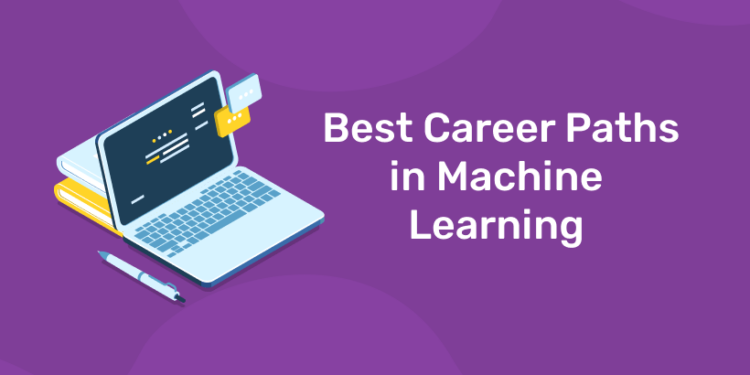Alan Turing stated in 1947 that “What we want is a machine that can learn from experience.” And that was the beginning of Machine Learning. In modern times, Machine Learning is one of the most popular career choices. According to Indeed, Machine Learning Engineer Is The Best Job of 2019 with a 344% growth and an average base salary of $146,085 per year.
So now that we have confirmed that Machine Learning is the future, the question that arises is… “What exactly is Machine Learning?” Well, Machine Learning involves the use of Artificial Intelligence to enable machines to learn a task from experience without programming them specifically about that task. This process starts with feeding them good quality data and then training the machines by building various machine learning models using the data and different algorithms. The choice of algorithms depends on what type of data we have and what kind of task we are trying to automate. Now that we have understood the basics of Machine Learning, let’s study the various careers in machine learning that can be forged using this knowledge.
Join for Data science & Machine Learning Course
Careers in Machine Learning
Machine Learning is very popular as it reduces a lot of human efforts and increases machine performance by enabling machines to learn for themselves. Consequently, there are many career paths in Machine Learning that are popular and well-paying such as Machine Learning Engineer, Data Scientist, NLP Scientist, etc.
1. Machine Learning Engineer A Machine Learning Engineer is an engineer that runs various machine learning experiments using programming languages such as Python, Java, Scala, etc. with the appropriate machine learning libraries. Some of the major skills required for this are Programming, Probability, Statistics, Data Modeling, Machine Learning Algorithms, System Design, etc. A common question is “How is a Machine Learning Engineer different from a Data Scientist?” Well, a Data Scientist analyzes data in order to produce actionable insights. These are then used to make business decisions by the company executives. On the other hand, a Machine Learning Engineer also analyzes data to create various machine learning algorithms that run autonomously with minimal human supervision. In simpler words, a Data Scientist creates the required outputs for humans while a Machine Learning Engineer creates them for machines.
Having complete knowledge of Python Programming Foundation -Self-Paced is a must to have in order to be a successful Machine Learning Engineer.
Grab the opportunity to learn Machine Learning with Entri! Click Here
2. Data Scientist: A Data Scientist uses advanced analytics technologies, including Machine Learning and Predictive Modeling to collect, analyze and interpret large amounts of data and produce actionable insights. These are then used to make business decisions by the company executives. So Machine Learning is a very important skill for a Data Scientist in addition to other skills such as data mining, knowledge of statistical research techniques, etc. Also, knowledge of big data platforms and tools, such as Hadoop, Pig, Hive, Spark, etc., and programming languages such as SQL, Python, Scala, Perl, etc. are needed by a Data Scientist.
3. NLP Scientist First, the question arises “What is NLP in NLP Scientist?” Well, NLP stands for Natural language processing and it involves giving machines the ability to understand human language. This means that machines can eventually talk with humans in our own language. So, an NLP Scientist basically helps in the creation of a machine that can learn patterns of speech and also translate spoken words into other languages. This means that the NLP Scientist should be fluent in the syntax, spelling, and grammar of at least one language in addition to machine learning so that a machine can acquire the same skills.
4. Business Intelligence Developer A Business Intelligence Developer uses Data Analytics and Machine Learning to collect, analyze and interpret large amounts of data and produce actionable insights that can be used to make business decisions by the company executives. (In simpler words, using data to make better business decisions). To do this efficiently, a Business Intelligence Developer requires knowledge of both relational and multidimensional databases along with programming languages such as SQL, Python, Scala, Perl, etc. Also, knowledge of various business analytics services such as Power BI would be great!
5. Human-Centered Machine Learning Designer Human-Centered Machine Learning relates to Machine Learning algorithms that are centered around humans. An example of this is video rental services like Netflix which provide their viewers with movie choices based on their preferences to create a “smart” viewer experience. This implies that a Human-Centered Machine Learning Designer develops various systems that can perform Human-Centered Machine Learning based on information processing and pattern recognition. This allows the machine to “learn” the preferences of individual humans without needing cumbersome programs that manually account for every conceivable user scenario.
Join for Data science & Machine Learning Course













